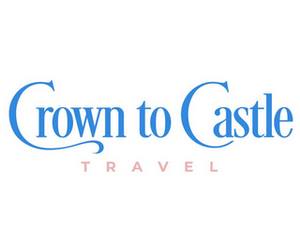 Back in April of 2014, a lawsuit was filed against Disney due to the new Disability Access Service (DAS) that was put in place back in October of 2013. Now, Disney is firing back and wants the lawsuit thrown out while also denying the existence of something called a “Magic List.”
Back in April of 2014, a lawsuit was filed against Disney due to the new Disability Access Service (DAS) that was put in place back in October of 2013. Now, Disney is firing back and wants the lawsuit thrown out while also denying the existence of something called a “Magic List.”
The lawsuit states that the policy put in place actually discourages guests with disabilities from visiting the theme parks in Anaheim and Orlando.
Disney has denied those claims from the start and now wants the lawsuit thrown out as stated in a 93-page response filed with the court.
It can be read in its entirety here.
Disney continuously states they have not violated the Americans With Disabilities Act, and again state they worked closely with Autism Awareness Groups in developing the DAS.
Along with the DAS replacing the Guest Assistance Card (GAC), the lawsuit claims the existence of a Disney VIP “Magic List.” These are claims that Disney vehemently denies.
According to the lawsuit, the “Magic List” is described as such:
“…a secret list of persons to whom Disney will automatically extend, without the stigma of a ‘Disability’ card, and without a mandatory photograph, and without the newly-ingrained disrespect of Disney employees, five immediate-entry, no-appointment ride passes.”
Disney’s response denies the existence of a “Magic List” at any of its theme parks.
As Deadline reports, the complaint filed in April does include so-called solutions to the waits, inconveniences, and problems that families endure with the DAS.
Actually, besides admitting that “this Court has federal question jurisdiction over the claims set forth in the Complaint,” and that it is a Florida-based corporation, the response filed on June 9 in U.S. District Court in California also rejects virtually everything else in the 176-page complaint filed by the families on April 3. And, with a remark that Disney “has a long-standing, unwavering commitment to providing a welcoming and inclusive environment and accessible experience for guests with disabilities,” it does so rather bloodlessly. Leaving the claims of personal traumas unaddressed, the response says the plaintiffs’ points “constitute conclusions of law to which Disney is not required to respond” or are repeatedly noted; one example: “Disney lacks sufficient information or belief to admit or deny the allegations in Paragraph 22 of the Complaint, and on that basis denies them.”
Those rejections, of course, also include the damages and other relief that the plaintiffs are seeking. “To the extent the Prayer for Relief may be deemed to require a response, Disney denies each and every allegation in this paragraph (as well as the subparagraphs therein), and denies that monetary damages, litigation costs, prejudgment interest or any other relief sought is appropriate or required,” says the response specifically on the matter on money.
A hearing date has not yet been set in the wake of Disney’s response.
Disney has repeatedly stated that they worked closely with autism awareness groups, families with special needs, and others while developing the DAS system.
The system was created and transferred over after monetary abuse of the old GAC system.
According to records, this is the first mention of a “Magic List,” and Disney has never touched on it before now. They have been accused of VIP entrances and treatment, but they even have VIP tours available. A “Magic List” is not even a part of said tours.


Speak Your Mind